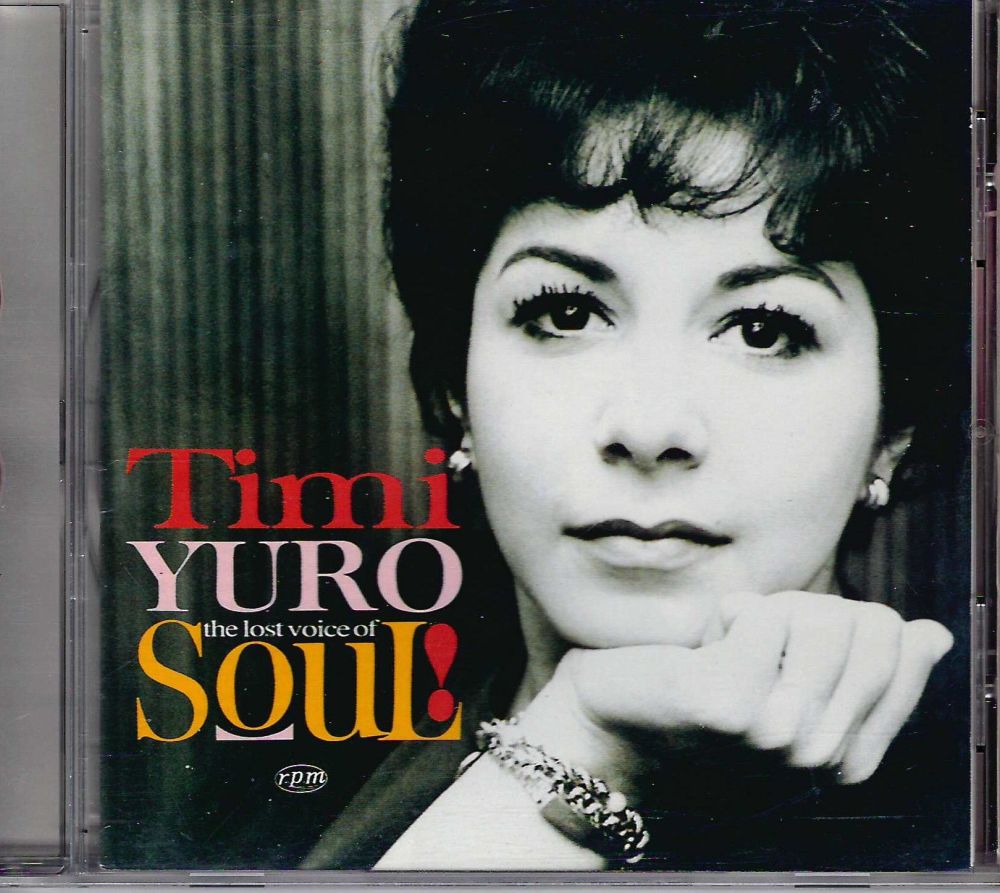

Subsequent records were unsuccessful, although a B-side, "Can't Stop Running Away", was later popular on the UK's Northern soul circuit. Nevertheless, her album The Amazing Timi Yuro, produced by Quincy Jones, was an artistic success. īy 1964, Yuro had moved to Mercury Records, but her first record for the label, "You Can Have Him", arranged by Jack Nitzsche, only just scraped into the chart and was her last hit. her image became established as a cabaret performer, rather than as a soul singer.
#Timi yuro greatest hits tv#
She toured Europe in 1963, and appeared on the British TV show Ready Steady Go!. Yuro was also known for soulful reworkings of popular American standards, such as "Let Me Call You Sweetheart", " Smile", and "I Apologize". The singer at her vocal peak, this recording includes the hit title song (later a bigger hit for Eddy Arnold, with whom the song is usually associated), a version of Willie Nelson's "Permanently Lonely", and two different blues takes of " I'm Movin' On". In the following year, Liberty released Make the World Go Away, an album of country and blues standards. It was arranged and co-written by Burt Bacharach, but Yuro refused to record his suggested follow-up, " What the World Needs Now Is Love". Her single "The Love of a Boy" reached No. Many listeners in the early 1960s thought Yuro was black. On both "Hurt" and "What's a Matter Baby", Yuro showed an emotional but elegant vocal style that owed a debt to Washington and other black jazz singers. In 1962, Bob Johnston and Otis produced Yuro's single "What's a Matter Baby (Is It Hurting You?)", which went to No. 42), opened for Frank Sinatra on his 1962 tour of Australia, and received a 1962 Grammy nomination for Best New Artist of 1961 (losing to Peter Nero).

She charted some further minor hits including " Smile" (No. Later that year she recorded as a duo with Johnnie Ray. Yuro's recording was produced by Clyde Otis, who had previously worked with Brook Benton and Dinah Washington. 4 single in 1961 with " Hurt", an R&B ballad that had been an early success for Roy Hamilton. Signed to Liberty Records in 1959, she had a U.S. In 1952, young Rosemary moved with her family to Los Angeles, where she sang in her parents' Italian restaurant and, despite their opposition, in local nightclubs before catching the eye and ear of talent scout Sonny Knight. By the time of her birth, however, the family used the spelling Yuro. Rosemary Yuro was born in Chicago, Illinois, United States, in 1940, into an Italian-American family whose original name may have been Aurro. According to one critic, "her deep, strident, almost masculine voice, staggered delivery and the occasional sob created a compelling musical presence". Sometimes called "the little girl with the big voice", she is considered to be one of the first blue-eyed soul stylists of the rock era. Rosemary Victoria Yuro (Aug– March 30, 2004), known professionally as Timi Yuro, was an American singer-songwriter.


 0 kommentar(er)
0 kommentar(er)
